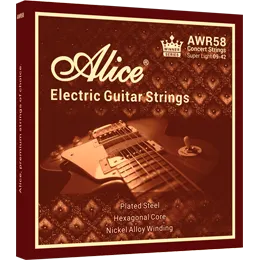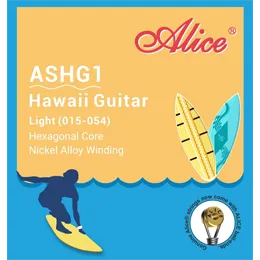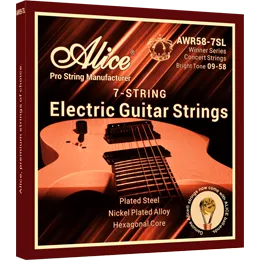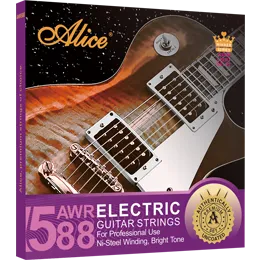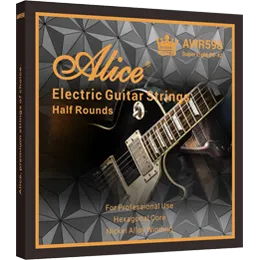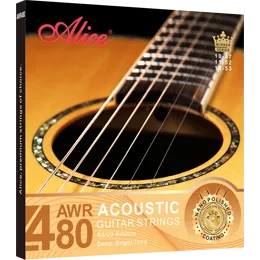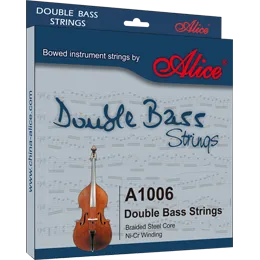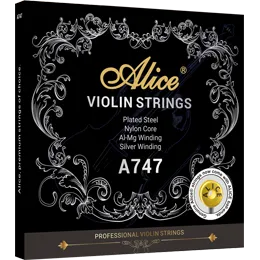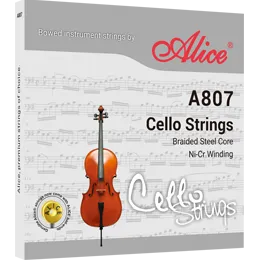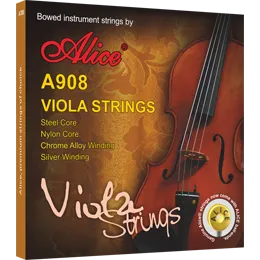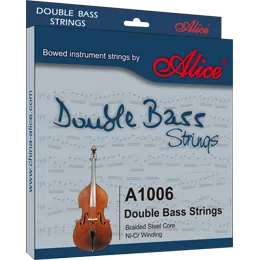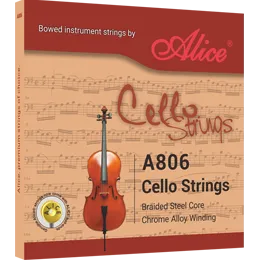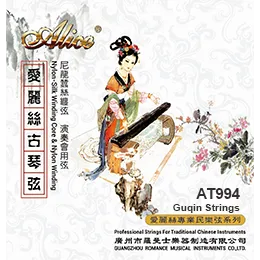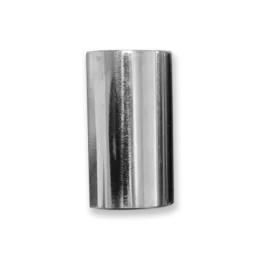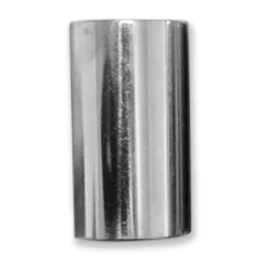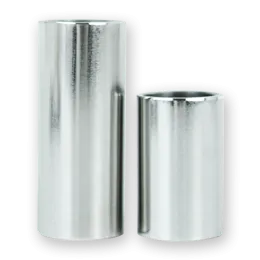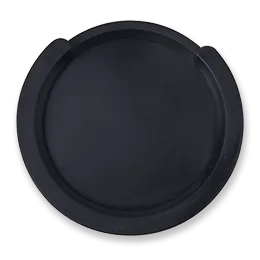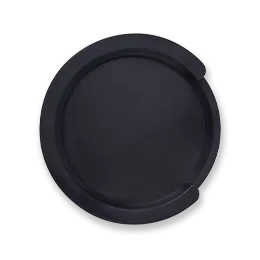What Strings Are Best for an Acoustic Guitar?
When it comes to acoustic guitars, the strings you choose can have a dramatic impact on your tone, playability, and overall playing experience. Whether you're a beginner or a professional, understanding the types of acoustic guitar strings available and how they affect your sound is crucial. With so many brands, materials, and gauges to choose from, selecting the best strings can seem overwhelming.
Why String Choice Matters
Unlike electric guitars, acoustic guitars rely heavily on string vibration to produce sound, since there are no pickups or amplifiers involved (unless you're using an acoustic-electric model). The type, material, gauge, and construction of your strings all play a vital role in determining:
Tone quality (bright, warm, or mellow)
Projection and volume
Playability and finger comfort
String lifespan
Choosing the best strings means aligning your playing style, musical genre, and personal preferences with the characteristics of the string.

1. String Gauge: Light vs. Heavy
Gauge refers to the thickness of the strings, usually measured in thousandths of an inch. Here's a general breakdown:
Extra Light (.010–.047)
Custom Light (.011–.052)
Light (.012–.054)
Medium (.013–.056)
Heavy (.014–.059)
Lighter Gauges
Easier to press down and bend
Better for beginners or fingerstyle playing
Produce a brighter tone
Less tension on the neck
May lack volume or sustain compared to heavier strings
Heavier Gauges
Louder and fuller tone with more sustain
More durable, ideal for strumming and flatpicking
Require stronger fingers and better technique
More tension, which can stress the neck or top of the guitar if it's not built for it
Verdict: Most acoustic guitar players start with light or custom light gauge strings as a balanced choice between tone and comfort.
2. String Material: Phosphor Bronze vs. 80/20 Bronze
The material used in the wound strings (typically the lower four) significantly affects tone and longevity.
80/20 Bronze
Made of 80% copper and 20% zinc
Bright, crisp, and clear tone
Often used for recording because of its clarity
Shorter lifespan — loses brightness quicker due to oxidation
Phosphor Bronze
Bronze with a small amount of phosphor added
Warmer, richer tone with more bass and midrange
Longer-lasting due to better corrosion resistance
Great for live performances and all-purpose playing
Verdict: If you want longer life and a well-balanced tone, go with phosphor bronze. If you prefer a brighter, sparkling sound, try 80/20 bronze.
3. Coated vs. Uncoated Strings
Coated strings have a thin polymer layer that protects the metal from sweat, oils, and humidity.
Pros:
Extended lifespan (often 3–5 times longer)
Smooth feel under the fingers
Great for players with acidic sweat or in humid environments
Cons:
Slightly less brightness than uncoated strings
More expensive than regular strings
Verdict: Choose coated strings if you play regularly and want to reduce how often you change strings.
4. Playing Style & Genre
Your playing style also influences the type of string that will serve you best:
Fingerstyle: Go for light gauge or extra light for ease of play and articulation.
Strumming: Use medium or custom light strings for full tone and durability.
Flatpicking/Bluegrass: Opt for medium to heavy gauge for volume and projection.
Singer-songwriters: Phosphor bronze, light gauge strings offer a warm tone ideal for accompanying vocals.
5. String Brand & Build Quality
Not all strings are created equal, even if they have the same gauge and material. Reputable brands use better core wire, tighter winding, and quality control to ensure consistency and tone.
Look for strings with:
Hexagonal or round cores (affects tension and tone)
Precision winding for even tension and better resonance
Anti-corrosion packaging to ensure freshness
How Often Should You Change Strings?
Even the best strings won’t last forever. Here are some general guidelines:
Casual players: Every 3–4 months
Frequent players: Every 4–6 weeks
Performers or recording artists: Weekly or before every gig/session
Signs it’s time to change:
Dull tone
Tuning instability
Visible rust or grime
Reduced sustain or clarity
Final Recommendation: What Strings Are Best?
Ultimately, the best strings for your acoustic guitar depend on your personal preferences, playing style, and budget. However, here are a few go-to combinations that suit most guitarists:
Phosphor bronze light gauge (0.012–0.054): Ideal for a warm, full tone with easy playability.
Coated 80/20 bronze custom light (0.011–0.052): Great for a bright sound with extended life.
Medium gauge phosphor bronze: Best for bold strummers or players looking for maximum volume.
Don’t be afraid to experiment. Strings are relatively inexpensive, and trying a few types can help you find your ideal tone and feel.
Discover Reliable Tone with Alice Strings
When you're searching for acoustic guitar strings that offer excellent tone, durability, and value, Alice Strings is a trusted name among musicians worldwide. Alice provides a wide selection of acoustic guitar strings made from premium materials, including phosphor bronze, 80/20 bronze, and coated options designed for both beginners and professionals.
With a focus on precision manufacturing and tonal balance, Alice Strings are engineered to bring out the best in your guitar—whether you're playing on stage, in the studio, or at home. For players who want consistent performance and inspiring sound at an affordable price, Alice Strings are an excellent choice.
Relate News
-
 Alice Guitar Strings are developed through years of focused string manufacturing experience, with strict control over material selection, winding consistency, and tension balance. Instead of chasing short-term trends, Alice emphasizes stable tone, comfortable playability, and predictable performance—qualities that matter most to beginners and advancing players.
Alice Guitar Strings are developed through years of focused string manufacturing experience, with strict control over material selection, winding consistency, and tension balance. Instead of chasing short-term trends, Alice emphasizes stable tone, comfortable playability, and predictable performance—qualities that matter most to beginners and advancing players. -
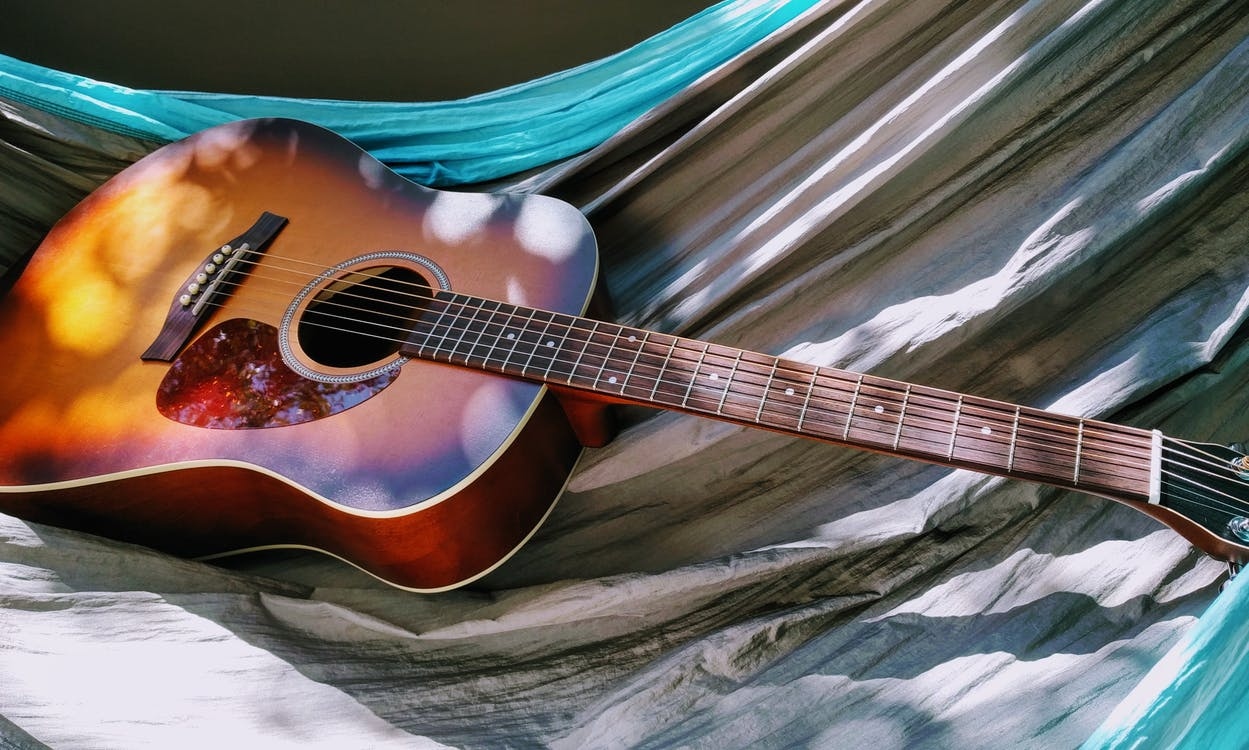
How to Clean Guitar Strings Without Damaging Them
Guitar strings are the heart of your instrument’s sound. They not only produce tone but also directly influence playability and feel. Over time, however, strings can accumulate dirt, sweat, oils, and other debris that dull their tone and shorten their lifespan. Cleaning your guitar strings regularly is essential for maintaining consistent performance and prolonging their life. In this guide, we’ll explore safe and effective ways to clean guitar strings without damaging them, ensuring that your guitar always sounds its best. -

Common Guitar String Problems and How to Fix Them
Whether you’re a beginner learning your first chords or a touring professional playing night after night, guitar strings are the heart of your tone. But even the best strings can run into problems — from tuning instability to premature breakage. Understanding the most common guitar string issues and knowing how to fix them can keep your instrument sounding its best and help you avoid unnecessary frustration. -

Why Your Guitar Strings Keep Breaking (and How to Prevent It)
Discover why guitar strings break and how to prevent it. Learn expert tips from Alice, a leading guitar strings manufacturer and OEM provider. -
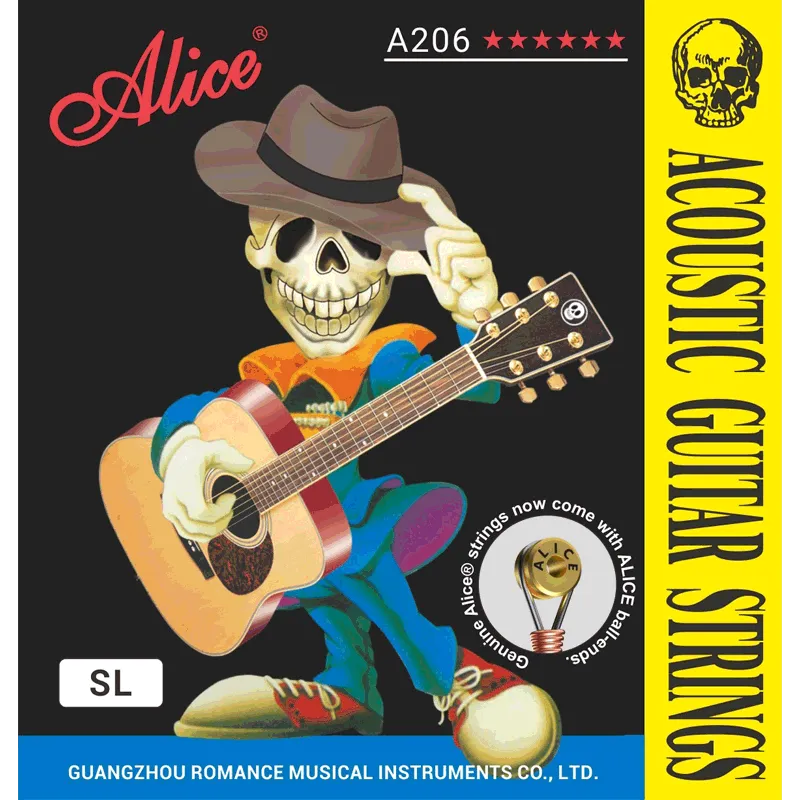
A Beginner’s Guide to Acoustic Guitar Strings
(Everything You Need to Know Before Changing Your First Set) When you first start playing the acoustic guitar, strings may seem like a small detail — but in reality, they’re one of the most critical factors shaping your tone, comfort, and overall playing experience. Choosing the right acoustic guitar strings can make your instrument sound brighter, fuller, and more expressive, while also helping you develop proper technique. -
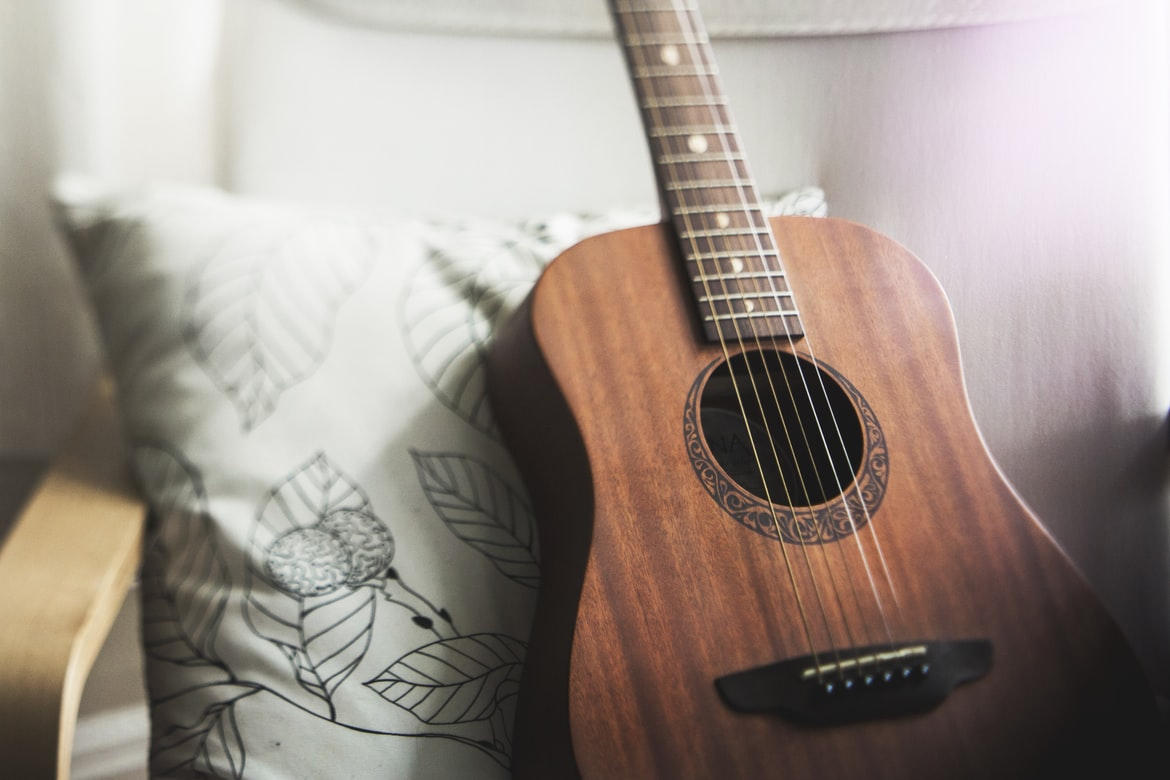
How to Source High-Quality Guitar Strings: A Complete Buyer’s Guide
As one of the world’s leading guitar strings manufacturer and guitar accessories suppliers, Alice combines decades of expertise with cutting-edge technology to produce strings that meet the highest professional standards. From classical nylon to electric steel and acoustic bronze, Alice Guitar Strings deliver unmatched tone, durability, and playability for musicians of all levels. -

Phosphor Bronze Strings vs. 80/20 Bronze Strings: Which Should You Choose?
When it comes to acoustic guitar strings, two of the most popular choices are phosphor bronze and 80/20 bronze. Both are widely used by guitarists around the world, but they differ in composition, tonal characteristics, durability, and playing applications. -
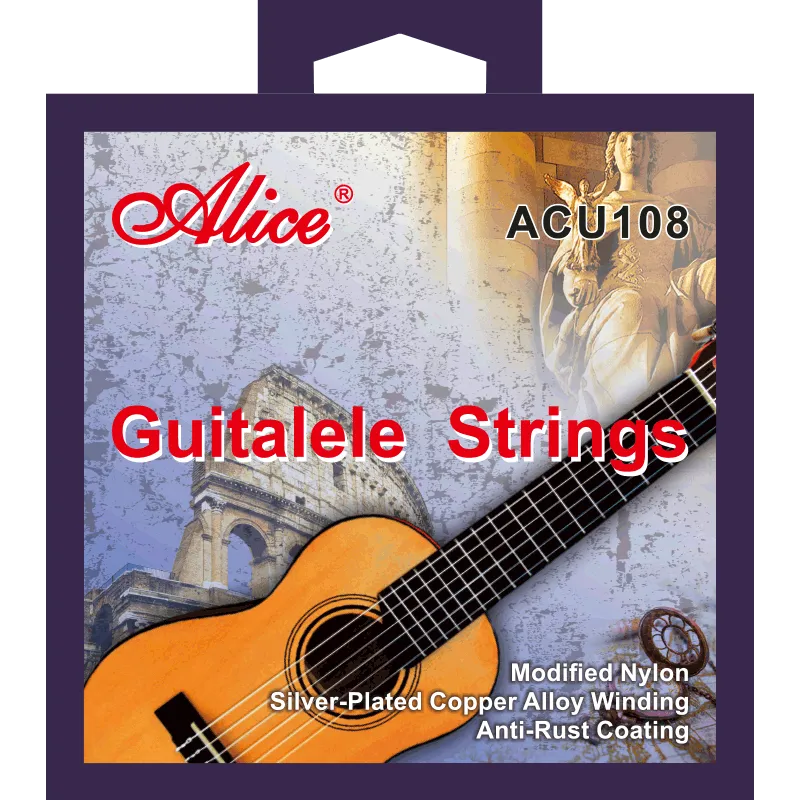
What is the Difference Between Guitar Strings and Guitalele Strings?
While the guitar and guitalele share many similarities, their strings are designed for different purposes. Guitar strings come in nylon, steel, or coated varieties and provide a wide tonal palette suitable for diverse genres. Guitalele strings, usually nylon-based, are tailored for higher tuning, lower tension, and the hybrid sound of this compact instrument. -
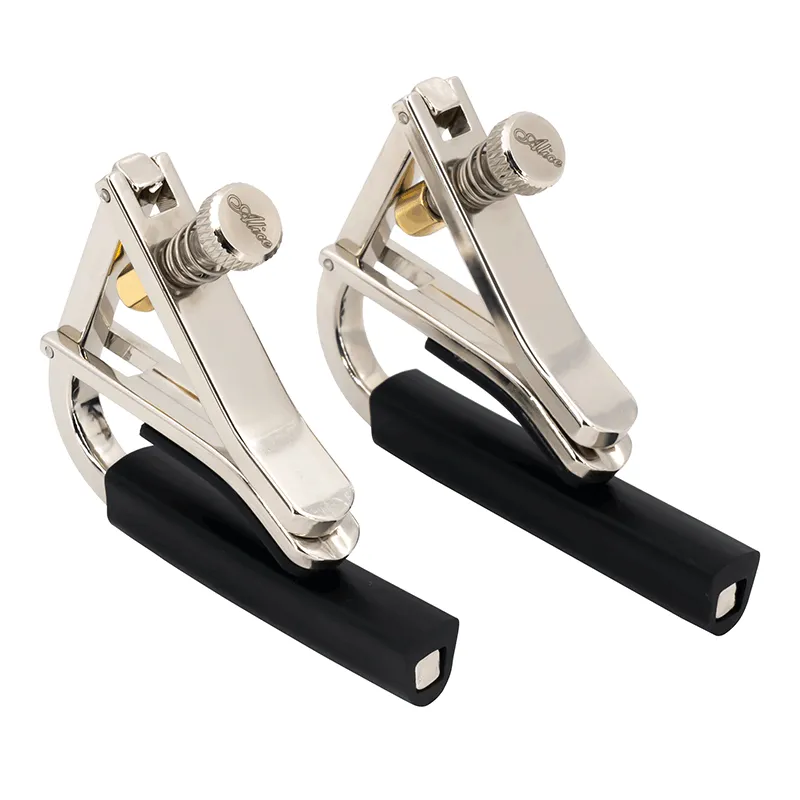
What Is a Guitar Capo Used For?
A guitar capo (pronounced kay-poh) is a small clamp-like device that attaches to the neck of a guitar. Its main purpose is to shorten the playable length of the strings, effectively raising the pitch of the open strings. In simple terms, it acts like a movable nut. -

How to Choose the Right Guitar String Gauge: Light, Medium, or Heavy?
One of the most important yet often overlooked aspects of your guitar’s sound and playability is the string gauge—in simple terms, the thickness of the strings. Whether you’re a beginner or a seasoned player, choosing between light, medium, or heavy gauge strings can greatly influence your tone, playing comfort, and technique. -
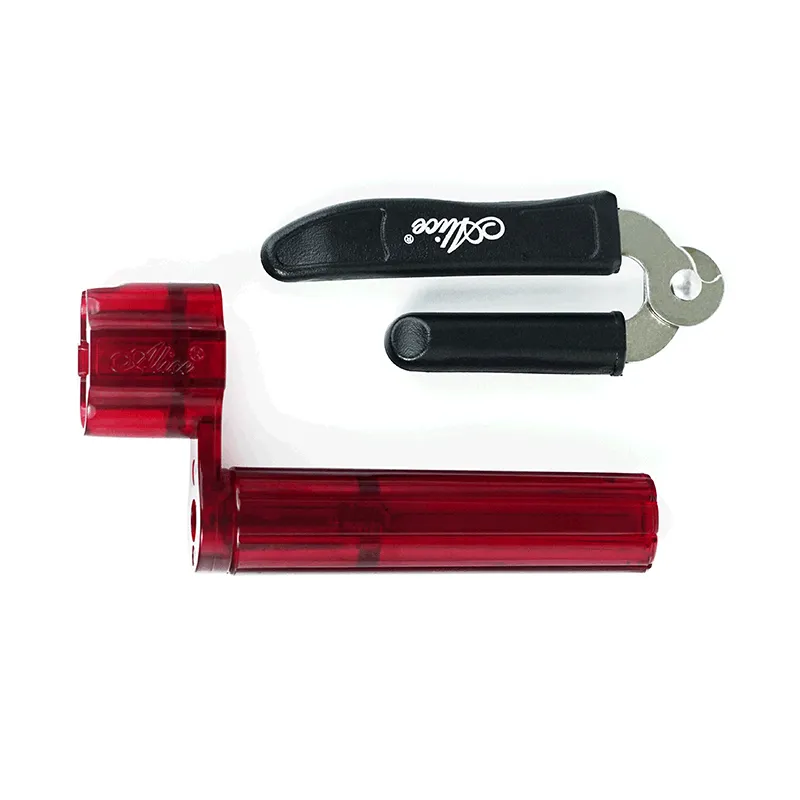
How to Change Acoustic Guitar Strings: A Step-by-Step Guide
Whether you're a beginner learning your first chords or a seasoned player preparing for your next gig, changing your acoustic guitar strings is a fundamental skill every guitarist should master. Over time, strings lose their brightness, become harder to tune, and even break. Fresh strings not only improve your guitar’s tone but also enhance your playing experience. This guide walks you through everything you need to know about changing acoustic guitar strings efficiently and safely. -
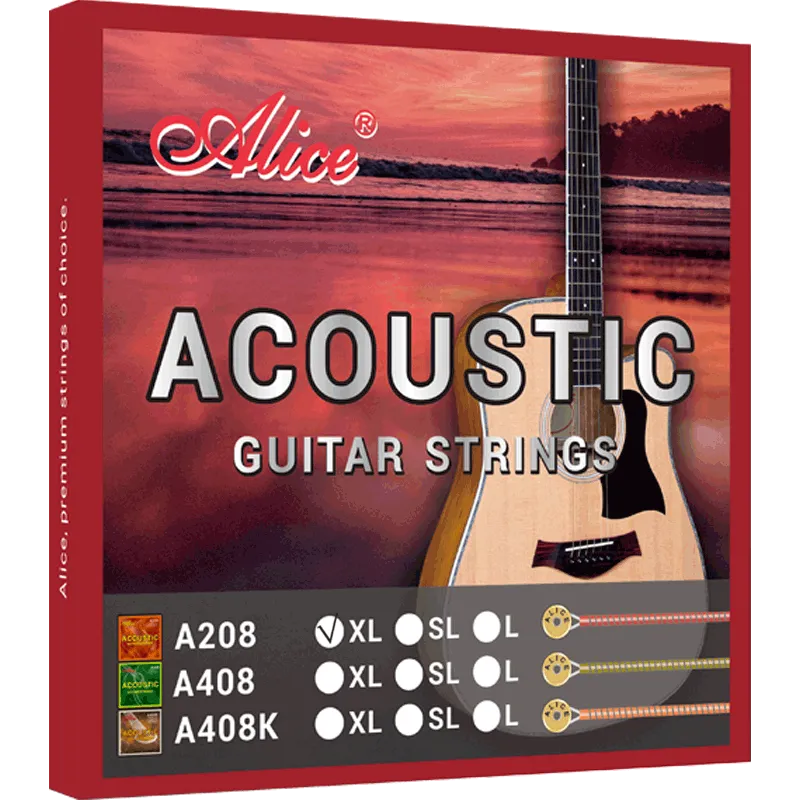
Electric Guitar Strings vs Acoustic Guitar Strings Difference, and Can Swap Them?
Guitar strings may all look similar to the untrained eye, but the difference between electric and acoustic guitar strings runs deep—both in terms of materials and musical function.


